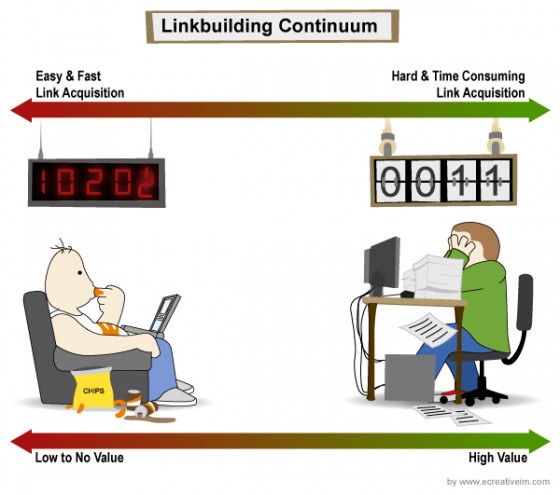
One of the most difficult, involved, debated and important parts of SEO is linkbuilding — accumulating those backlinks to a website that build it’s authority in the eyes of search engines. Because it’s so important, it’s also become one of the most manipulated aspects of SEO, leading to a constant battle between search engines and SEOs.
Of course getting links is a good thing, but search engines want you to get links because you earned them, because you deserve those mentions. They don’t want you to just buy them, or build a program that automatically creates hundreds or thousands of sites complete with links back to yours. In fact, Google is getting more and more aggressive in penalizing sites that use these practices.
What Kind of Linkbuilding is Good Linkbuilding
The actual details of evaluating the worth of links is complicated with many different factors, each with different and ever-changing weights. Volumes could be written on it. But in practice identifying high quality backlinks is pretty easy:
The harder & rarer a link is to acquire, the more beneficial that link is likely to be.
Any linkbuilding practice that is easy, or quick, or can be automated is almost certain to be of poor value, no value, or even negative value. If you can get a link in 15 minutes by submitting to a directory, for example, that link is pretty certain to have very little benefit. Certainly in massive quantities they can make a difference, for a while, until the next Google penalty hits.
The reason here is that anything that is fast or can be automated has been abused by black hat SEOs and caused search engines to respond by devaluing it. But those links that are hard to acquire or require significant content development or PR strategies are likely to remain beneficial quality links simply because not just anyone can go do it, nor can it be automated.






